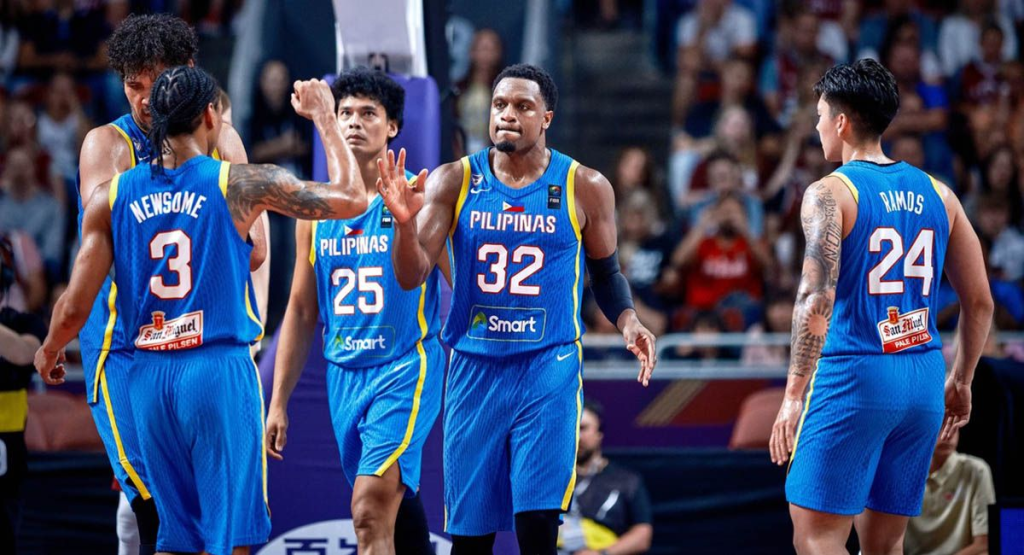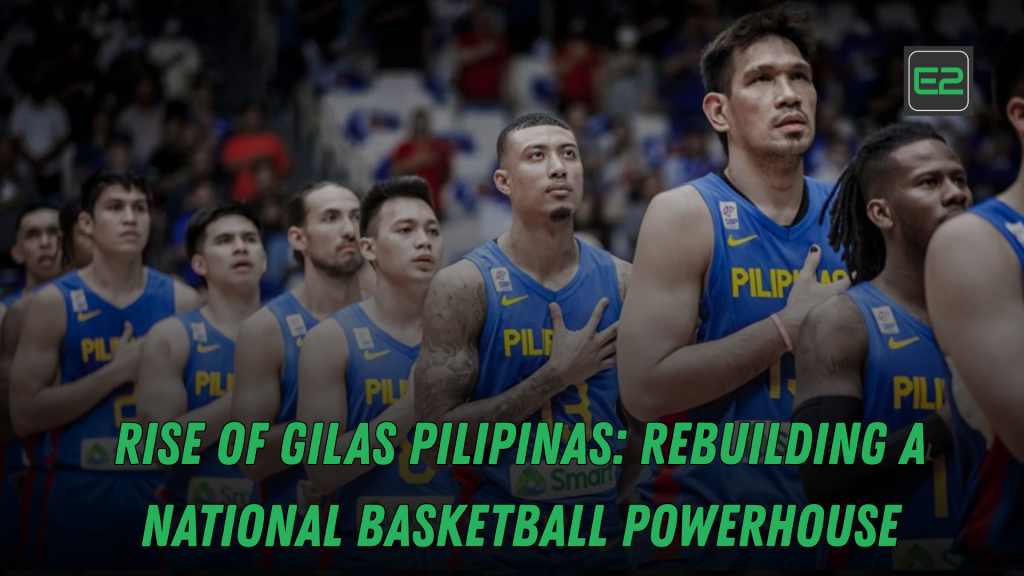Table of Contents
A Nation’s Love Affair With Basketball
GILAS PILIPINAS: Basketball is not just a sport in the Philippines — it’s a national obsession. From narrow street courts to packed arenas, Filipinos live and breathe basketball. At the center of this passion is Gilas Pilipinas, the country’s national basketball team. Once a regional heavyweight, Gilas Pilipinas went through turbulent years marked by inconsistent performances, coaching changes, and public criticism. Today, however, the program is experiencing a rebirth — a strategic rebuilding of a basketball powerhouse, determined to restore pride on the international stage.

The Fall and Challenges of the Past
While the Philippines enjoyed early basketball dominance in Asia during the 1950s and ‘60s, the decades that followed were not kind. Various issues led to the decline of Gilas Pilipinas:
Main Challenges:
- Inconsistent coaching strategies
- Lack of long-term player development
- Conflicts between basketball stakeholders (PBA, SBP, UAAP/NCAA)
- Limited preparation time for international tournaments
- Dependence on naturalized players instead of grassroots talent
In tournaments like the FIBA World Cup and FIBA Asia, Gilas showed flashes of brilliance but often faltered against more organized and physically dominant teams.
Rebuilding Gilas Pilipinas: The Turning Point
The road to rebuilding began with two key shifts:
1. Stronger SBP Vision and Leadership
The Samahang Basketbol ng Pilipinas (SBP) began prioritizing long-term planning, focusing on player continuity and youth development, rather than relying solely on last-minute rosters.
2. Investment in Local Talent
More resources were directed at grassroots programs, national youth teams (Batang Gilas), and professional-level conditioning.
This reset wasn’t just about winning games — it was about building identity, structure, and sustainability.
New Coaching Philosophy
Recent years saw major changes in Gilas’ coaching strategy:
- Coach Chot Reyes and Coach Tab Baldwin played pivotal roles in restructuring the team.
- Emphasis shifted from traditional offense-heavy tactics to defense, ball movement, and system-oriented play.
- Greater focus on international-style play to match up against taller, stronger opponents.
The result? A smarter, more cohesive Gilas team that could compete with—and beat—top-tier teams in Asia.

Youth Movement and Core Development
One of the biggest turning points in the Gilas rebuild was the inclusion of young, high-potential players early in their careers. Unlike past setups where players joined the national team late, this new batch trained together consistently, building chemistry and cohesion.
Rising Stars of Gilas:
- Kai Sotto – 7’2” prodigy, international experience from Australia and Japan
- Carl Tamayo – versatile big man with shooting range
- Dwight Ramos – a complete guard with elite defense
- RJ Abarrientos – quick playmaker with international league experience
- AJ Edu – mobile big man with defensive prowess
These players form the core of the new Gilas, all in their early 20s with international exposure — a clear investment in the future of Philippine basketball.
International Campaigns: Signs of Progress
1. FIBA Asia Cup
Despite not winning the championship, Gilas displayed grit and growth, challenging top teams like South Korea, China, and New Zealand. Wins against South Korea, once considered a regional giant, proved Gilas could rise again.
2. World Cup Qualifiers
In games against taller and more experienced teams, Gilas managed to keep scores close and even pull off upsets. Their physical conditioning and defensive improvements were clearly visible.
3. SEA Games
After a shocking loss to Indonesia in 2022, Gilas bounced back in 2023 with a dominant gold-medal campaign — showing resilience and maturity under pressure.
The Role of the PBA and Collegiate Leagues
A major criticism of the past was the lack of alignment between the PBA and the national team. That has changed in recent years:
- More cooperation from PBA teams allowing players to join Gilas camps early
- Use of UAAP and NCAA talents to fill developmental rosters
- Introduction of cadet programs, where players train exclusively for Gilas while being groomed for the pro level
This collaborative approach ensures that talent pipelines remain active, reducing the gap between generations.
System Over Stars: A Modern Approach
Instead of building around just one or two superstars, Gilas now adopts a system-first philosophy:
- Team defense over individual offense
- Ball movement and shooting over isolation plays
- Role-based rosters, assigning players to do what they do best
This model mirrors the success of teams like Japan, Australia, and Spain, and is now at the heart of the Gilas strategy.
Mentality and Culture Shift
One of the less talked-about but most important changes is the shift in mentality:
- Players are more committed to national duty
- Fans are more patient, understanding that rebuilding takes time
- Coaches emphasize accountability and professionalism
The “puso” (heart) remains — but it is now paired with structure, discipline, and long-term planning.
What’s Next for Gilas Pilipinas?
1. FIBA Asia Cup 2025
With a young core that has trained together for years, Gilas is a legitimate contender for the top 3 spots.
2. 2027 FIBA World Cup
Building on the experience from 2023, expectations are higher. More international tune-ups and camps are planned.
3. Olympic Dream
It may still be ambitious, but with consistency and continuous development, an Olympic berth is not impossible.

More Than a Team, a Symbol of National Revival
The rise of Gilas Pilipinas is not just about basketball — it’s about national pride, resilience, and unity. The rebuilding process proves that with vision, patience, and investment in the youth, the Philippines can once again become a force in Asian basketball and beyond.
🏀 Are you a fan of Gilas Pilipinas?
📲 Follow us for exclusive updates, player features, and game analyses.
💬 Drop a comment: Who’s your favorite Gilas player, and why?
Let’s keep the support strong. Isang Laban, Isang Puso, Gilas Pilipinas!

